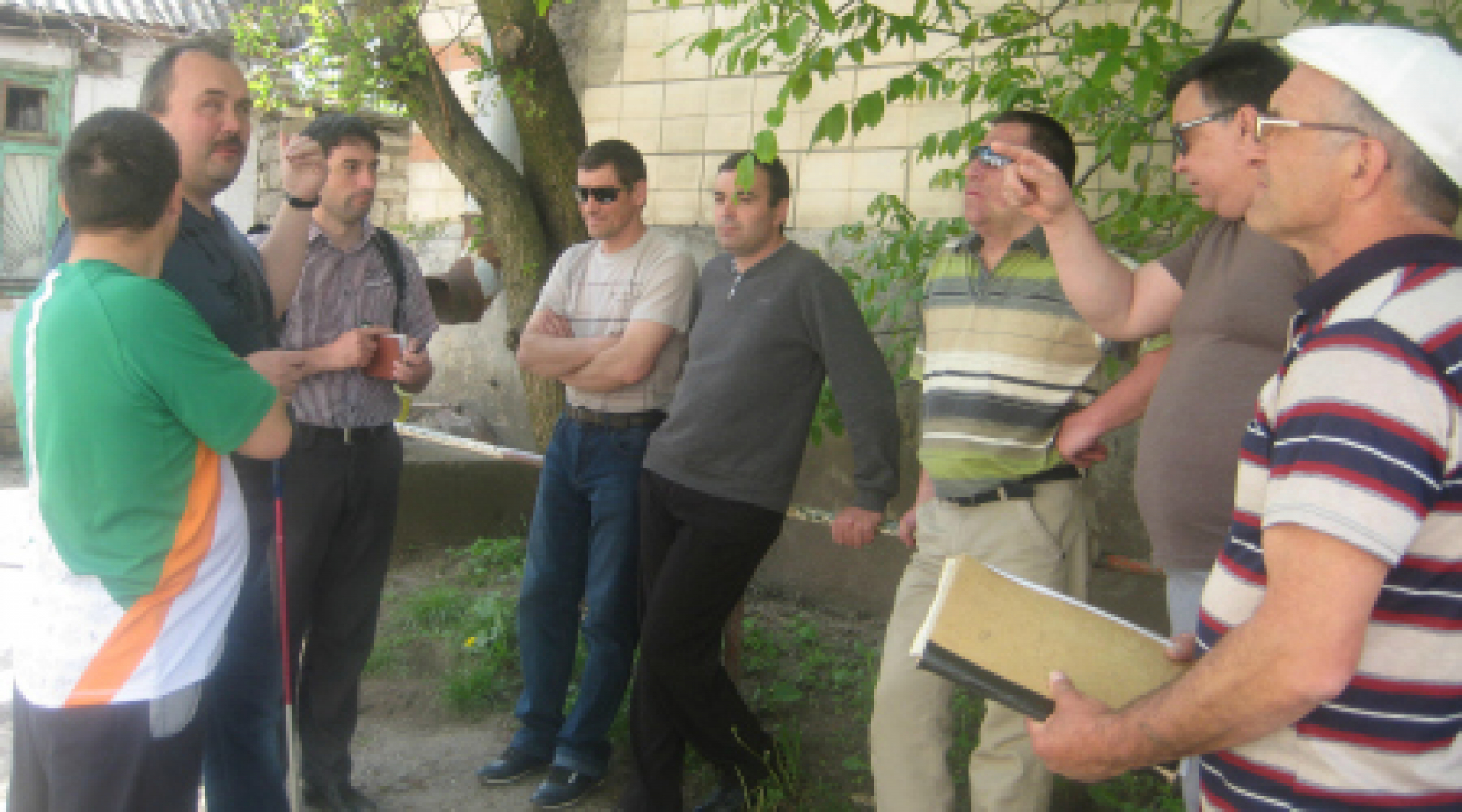
SHARE
Without a special traffic light that emits an audible signal, people who are blind or have low vision may risk their lives by the simple act of crossing streets. Such audible signals are expensive, particularly in Moldova, which is Europe’s poorest country. A civic group in Soroca, a city in northern Moldova, didn’t let this stop them. Thanks to their successful advocacy, the quality of life for Soroca’s large community of blind citizens is improving and inspiring further community involvement.
Identifying the Issues
During the Soviet period, the government established a residential facility for blind citizens in Soroca. Today, this community encompasses over 250 individuals, including an active civic group, The Association of Blind People, which has worked with NDI since 2014 to advocate for solutions to problems facing their community. Led by NDI civic organizer Ala Taran, the initiative group went door-to-door to discuss local issues with more than 100 blind people in the neighborhood. The priority issue of people surveyed was the lack of traffic lights with audible signals at a busy intersection. In the past two years, there were several accidents and four fatalities involving people who were blind or who had low vision crossing the street. The issue was urgent and pressing for the community and local government had done nothing to address it.
Cooperating with Local Authorities
NDI’s Moldova team equips local civic groups with the tools, methods and a process to solve problems like this. The group in Soroca petitioned the local government and developed a strategy to advocate for a solution. Success was not immediate. The group members attended local council meetings and wrote letters to elected officials, but the authorities did not respond. The group persevered, turning to local media to raise awareness and gain greater public support. After a second petition to the authorities and an article in local media the local government installed a traffic light with an audible signal to help blind people safely cross the intersection in their neighborhood.
Maintaining the Momentum
The initiative group maintained the momentum of their successful advocacy campaign and continued to propose changes to the neighborhood, including the installation of street lights and sidewalk repairs. After two months of advocacy, the government responded; Soroca now has street lights and sidewalk repairs are underway.
The successes have energized Soroca’s blind community, which was demoralized as Soviet era and even post Soviet services for blind people have contracted with Moldova’s economy. Now these citizens are more empowered to advocate for their rights and contribute to positive changes. They are active in local debates, regularly petition the mayor and communicate with the public. As Ala Taran explained, “From the very beginning group members were not sure that they could achieve anything and had doubts while advocating for their issue. After they resolved the first issue, they became more enthusiastic and motivated and now are willing to do more and more for their community. They understand that they have power and can influence decisions at the local level.”
NDI and its civic partners are organizing similar advocacy campaigns throughout the country. By applying NDI’s methodology of citizen outreach and engagement, the groups are achieving success that will inspire other citizens to create change their communities.


